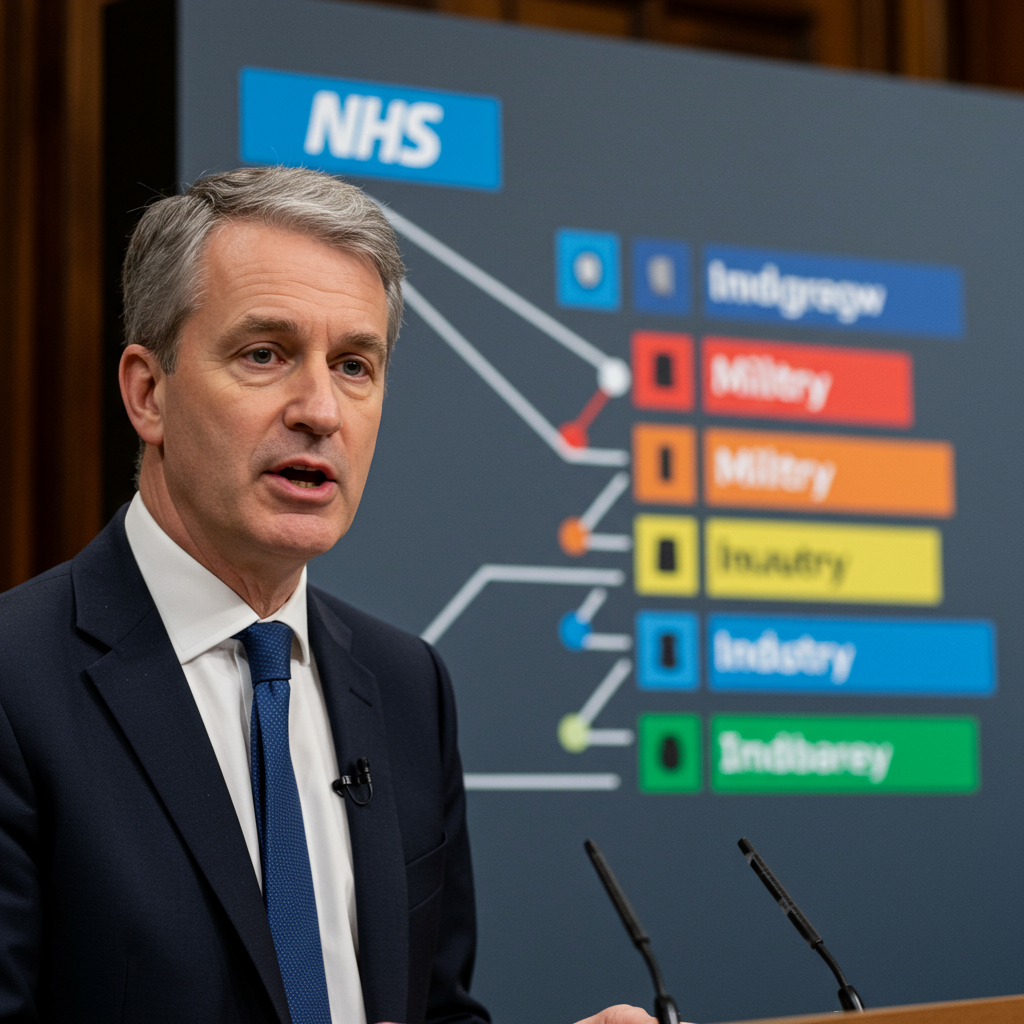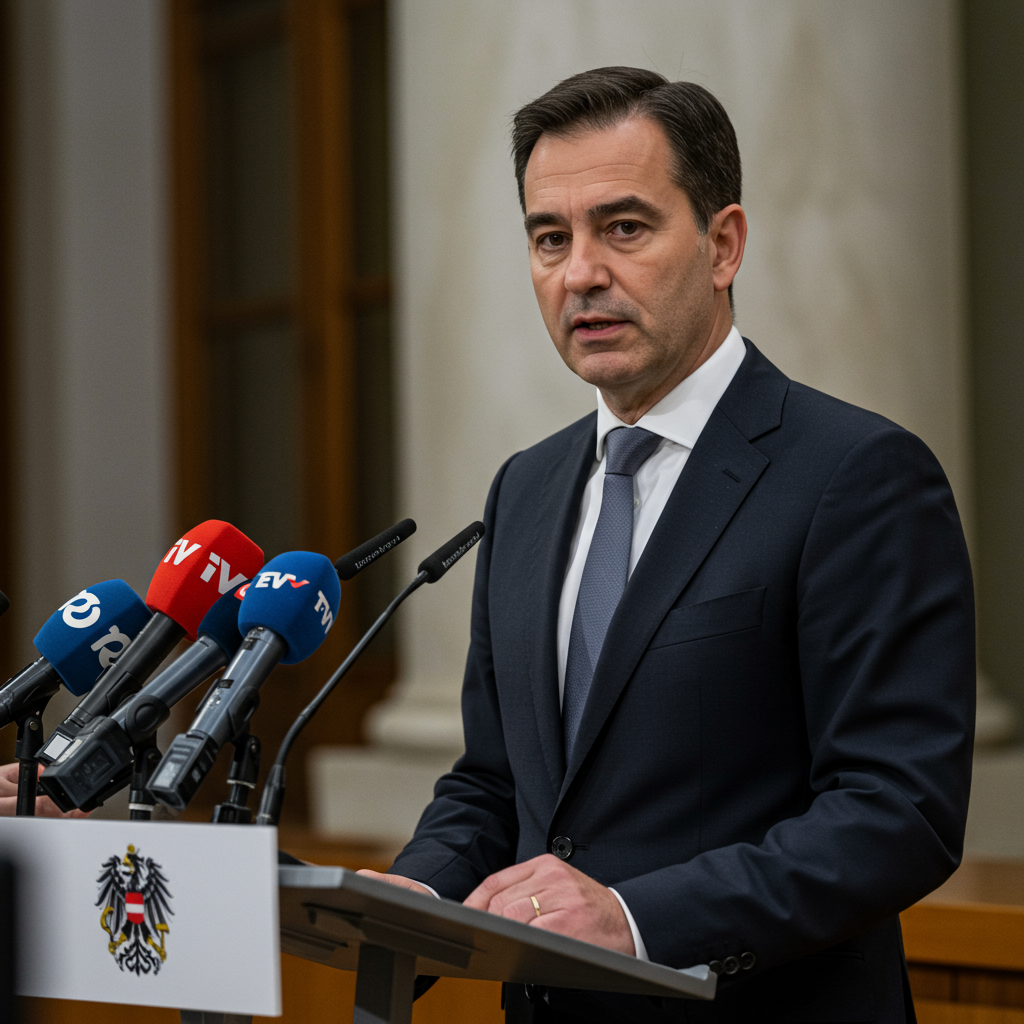The UK government has unveiled its multi-year Spending Review 2025 (SR25), outlining ambitious plans and significant financial commitments through to 2028-29 for day-to-day spending and 2029-30 for capital investment. Framed as an investment in Britain’s renewal – focusing on security, health, and the economy – the review sets out departmental budgets designed to deliver on the government’s key missions and “Plan for Change.”
Total departmental budgets are projected to increase by an average of 2.3% per year in real terms over the SR period. This includes a 1.7% average annual real terms increase for day-to-day spending and a 3.6% average annual real terms increase for capital investment. These increases are underpinned by the government’s commitment to economic stability, guided by clear fiscal rules requiring day-to-day spending to be funded by tax receipts and public debt to be on a downward path while still enabling strategic investment.
Speaking on the review, the Chancellor emphasized that the aim is to make working people better off across the country, rebuild public services, and invest in economic opportunities. This approach, dubbed “securonomics,” highlights the government’s intent to bolster national economic resilience and security in an uncertain global landscape.
Investing in Growth and Opportunity
Driving economic growth is a central pillar of SR25. The government is allocating substantial new capital investment to stimulate growth across the UK, addressing what it identifies as a historic period of underinvestment.
Infrastructure: Significant investment is planned for economic and social infrastructure. This includes increased transport capital investment, particularly pivoting towards city regions in the North and Midlands to address historical imbalances. Specific projects include further funding for the Transpennine Route Upgrade, East-West Rail (Oxford-Cambridge corridor), and the Midlands Rail Hub. A new 10-Year Infrastructure Strategy is expected soon, detailing the long-term plan for delivery and reform.
Housing: The review reinforces the commitment to building 1.5 million homes. It includes a 10-year commitment to the Affordable Homes Programme, described as the biggest cash injection in 50 years, totaling £39 billion over the decade. An additional £10 billion in financial investments, partly through Homes England, aims to attract private capital.
R&D and Innovation: Recognising R&D as crucial for growth, funding is set to rise to a record £22.6 billion per year by 2029-30, representing an £86 billion package over four years. This includes enhanced support for UK Research and Innovation and association to Horizon Europe. A new £410 million Local Innovation Partnerships Fund will empower regional leaders, while £750 million is allocated for a new national supercomputer at Edinburgh University, expected to be the UK’s largest.
Artificial Intelligence (AI): A significant £2 billion is committed to fully implement the AI Opportunities Action Plan, backing the UK’s AI companies, building sovereign AI capabilities, expanding the AI Research Resource twentyfold, and supporting skills development and adoption.
Business Support: The British Business Bank’s financial capacity will increase substantially to £25.6 billion, boosting its support for innovative businesses and attracting private investment.
Skills and Employment: An additional £1.2 billion per year by 2028-29 is allocated for skills training, supporting over 1.3 million 16-19 year olds and funding construction worker training. Funding for employment support rises to over £3.5 billion by 2028-29, focusing on tackling inactivity and supporting those with health conditions or disabilities back into work.
Regional Growth: Alongside Barnett formula uplifts for devolved governments (£50.9bn average for Scotland, £22.4bn for Wales, £19.3bn for Northern Ireland per year 2026-29), targeted funding and devolution deals aim to spread growth. A Growth Mission Fund will expedite local regeneration projects. A review of the Treasury’s appraisal methods (Green Book) aims to ensure investment supports place-based business cases and doesn’t disadvantage regions outside the South East.
Strengthening National Security & Borders
Keeping the country safe is highlighted as the government’s first duty.
Defence & Intelligence: Defence spending is set to reach 2.6% of GDP by 2027, with an ambition for 3% in the next Parliament. This includes an £11 billion increase for the Ministry of Defence and a £600 million uplift for intelligence agencies (MI5, SIS, GCHQ) to keep pace with rising threats and technological advancements. Investments include munitions and nuclear submarine production.
Border Security & Asylum: To tackle illegal migration and small boats, the new Border Security Command receives up to an additional £280 million annually by 2028-29. Transformation funding of £200 million aims to accelerate asylum system reforms, clear the backlog, and end the costly use of asylum hotels within this Parliament, projected to save £1 billion per year.
Investing in Public Services
Significant investment and reform are planned across key public services to improve outcomes and productivity.
NHS & Health: The NHS receives record investment, with day-to-day spending increasing by a 3.0% average annual real terms rate, resulting in a £29 billion real terms increase (£53bn cash) by 2028-29, reaching £226 billion. Capital budgets for health also increase substantially (£2.3bn real terms by 2029-30) for new technology, hospitals, and primary care. This investment supports the goal of 92% of patients starting non-urgent consultant-led treatment within 18 weeks by the end of the Parliament. A major shift towards digital transformation is planned, with up to £10 billion invested in NHS technology and transformation by 2028-29. Reforms aim for 2% annual productivity growth, potentially saving £17 billion over three years to be reinvested. Adult social care funding also sees an increase of over £4 billion by 2028-29 compared to 2025-26.
Education: The core schools budget increases by £2 billion in real terms over the SR, with a £4.7 billion cash increase per year by 2028-29, ensuring 1.1% average annual real terms growth per pupil. This includes funding to expand Free School Meals eligibility to all children with a parent receiving Universal Credit (£410 million per year), projected to lift 100,000 children out of poverty. Investment in school buildings continues with around £2.4 billion per year for the School Rebuilding Programme and increased maintenance funding. Support for early years includes £370 million for school-based nurseries.
While investment in skills and earlier education is outlined, the review was notably light on detail regarding core university funding, such as tuition fees and student maintenance loans. There is also a commitment to explore introducing a levy on higher education provider income from international students to support domestic skills training, a proposal that has drawn attention from the sector.
Justice & Policing: To address prison capacity issues and improve justice outcomes, £7 billion is allocated to build 14,000 new prison places by 2031. Probation receives up to £700 million additional annual funding by 2028-29 for transformative reforms. The courts system gains up to £450 million additional annual investment by 2028-29 to tackle backlogs. Police spending power increases by an average of 2.3% per year in real terms, supporting neighbourhood policing and adding 13,000 officers, PCSOs, and special constables.
Local Government: An additional £3.4 billion in grant funding by 2028-29 (compared to 2024-25) supports local authorities, resulting in a 3.1% average annual real terms increase in core spending power. Funding consolidation aims to simplify the landscape. Over £500 million from the Transformation Fund supports children’s social care reform.
Driving Efficiency and Value for Money
Ensuring every taxpayer pound is spent well is a key focus, marked by the first zero-based review (ZBR) of spending in 18 years.
Every department has scrutinised spending line-by-line and committed to at least 5% savings and efficiencies by 2028-29, with ongoing 1% annual technical efficiency targets recommended by the new Office for Value for Money.
Measures include reducing administration budgets (by at least 16% real terms by 2029-30), cutting consultant spend (£700 million per year saving by 2028-29), reducing communications spend, cracking down on wasteful GPC spending, and combating fraud.
Civil Service modernization includes relocating 12,000 roles out of London by 2030, developing regional hubs, and investing in digital skills and productivity improvements using AI and automation.
Reviews of arm’s length bodies are underway to identify potential mergers or closures (e.g., NHS England into DHSC, Valuation Office Agency into HMRC).
Clean Energy Superpower Mission
Accelerating the transition to clean energy by 2030 is a priority, linked to energy security and economic growth.
Significant investment in nuclear includes £14.2 billion for Sizewell C, over £2.5 billion for a Small Modular Reactor programme (with Rolls-Royce SMR as preferred bidder), and over £2.5 billion for nuclear fusion.
Increased backing for Carbon Capture, Usage and Storage (CCUS) includes £9.4 billion capital investment to deploy clusters (East Coast, HyNet, Acorn, Viking).
Investment supports offshore wind development (e.g., Port Talbot port investment) and the publicly owned Great British Energy and Great British Energy – Nuclear, which will invest over £8.3 billion in homegrown clean power.
The Warm Homes Plan receives £13.2 billion over the SR period to support heat pumps, energy efficiency, and other low-carbon technologies, aiming to cut bills and tackle fuel poverty.
- Spending on climate adaptation and nature recovery also sees significant investment (£2.7 billion per year in sustainable farming and nature, £4.2 billion over three years for flood defences).
- www.gov.uk
- www.researchprofessionalnews.com
- www.tomshardware.com
- www.techradar.com
- www.deloitte.com
Addressing Cost of Living Pressures
While consumer confidence remains stable but nervous, with households prioritising essentials, SR25 includes measures aimed at easing cost of living pressures for working families. Alongside the expansion of Free School Meals, this includes capping bus fares (£3 cap extended), capping school uniform costs, and expanding the Warm Homes Plan.
Overall, the Spending Review 2025 sets out a comprehensive plan backed by significant investment, aiming to deliver economic stability, strengthen public services, enhance security, and foster growth across the United Kingdom over the coming years, albeit with some areas of future policy detail still to be clarified.



